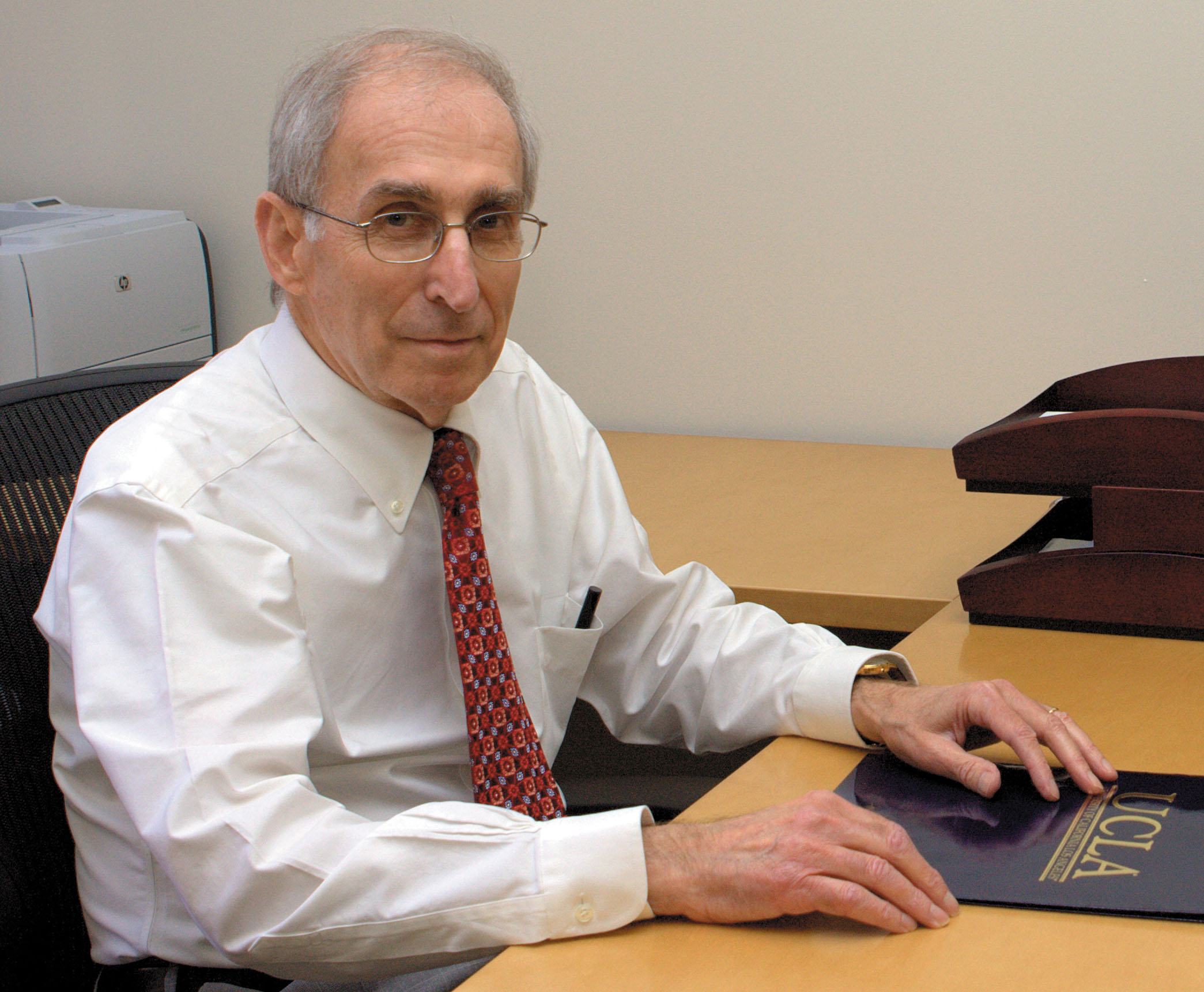Although Dr. Gerald Levey’s office is now barren of nearly all of his previously displayed possessions, there is still one framed picture lying on the table of him with I.M. Pei, the famed architect of the Ronald Reagan UCLA Medical Center.
“It was taken when Reagan Medical Center was opened,” Levey said. “Opening one of the greatest hospitals in the country was by far the biggest achievement of my career. You want to smile every time you think about it.”
It is accomplishments like this that Levey said he will remember when he steps down from his position as vice chancellor of medical sciences and dean of the UCLA David Geffen School of Medicine at the end of this week.
The incoming dean, Dr. Eugene Washington, will take over on Monday. Washington is currently the executive vice chancellor and provost and professor of gynecology, epidemiology and health policy at the University of California, San Francisco.
Levey, an internist and endocrinologist, came to UCLA in 1994, eight months after the large Northridge earthquake that devastated the Los Angeles area. He immediately set out to repair the damage to the UCLA Center for Health Sciences.
“We had to develop new research buildings that were seismically secure,” Levey said. “And it also became clear that we absolutely needed to build a new hospital.”
So began Levey’s partnership with Pei, whose proposal for the building was chosen among four others.
According to the dean, it took 14 years to construct the medical center, from negotiating with the Federal Emergency Management Agency to cutting the ribbon. Levey described the day the hospital opened, June 29, 2008, with apparent relish.
“The happiness and feeling I got is indescribable,” Levey said, leaning forward and gesturing enthusiastically. “We could do so much more in the new hospital.”
Levey said he also had other goals for the medical school, such as developing UCLA’s oncology, cardiovascular disease, neuroscience and genetics programs.
“(Levey) has been the staunchest supporter of women’s reproductive health research,” said Dr. Gautam Chaudhuri, executive chair of obstetrics and gynecology and professor of molecular and medical pharmacology.
“He always treats everyone as equal colleagues.”
Upon arriving at UCLA, the new dean promoted close relationships between the medical school and the division of life sciences in the College of Letters and Science. The goal, Levey said, was to establish a larger research base at the undergraduate level.
“I hope people (at UCLA) realize how great this school is,” Levey said. “The faculty here is an amazing group, and students are fortunate enough to work with them. I am going to miss that.”
Levey did not hesitate to make clear that his job would not have been the same if it were not for the people working with him.
“I cannot stress enough how extraordinary the people here are,” Levey said several times.
Many of his colleagues reciprocated this sentiment.
“(Levey) relates very well to people,” his wife and colleague Dr. Barbara Levey said.
“I don’t think he has any enemies at all.”
Barbara Levey, an assistant vice chancellor of biomedical affairs, also noted his great energy outside of the workplace.
“We used to play tennis, but after he hurt his back, we had to stop,” she said. “We still exercise regularly, but now it is with a cross-trainer. He has always been full of energy.”
Dr. Richard Shemin, Robert and Kelly Day professor and chief of cardiothoracic surgery, said he believes Levey impacts and influences every student who meets him.
“There is a huge disconnect between the warm human being he is and the hard-driven powerhouse you expect him to be,” Shemin said.
Levey said that he learned how to be a successful leader at his previous job. Prior to becoming a dean and vice chancellor at UCLA, Levey served as senior vice president for medical and scientific affairs at pharmaceutical firm Merck & Co.
“(Merck & Co.) was by far the best training ground for this job,” Levey said. “But I have learned so much from each university I have been at, too.”
And Levey is not yet finished.
Once he steps down as dean and vice chancellor, he will still remain a full-time faculty member. He will also keep an office in the building, where his prized photo with I.M. Pei will hang.
“I want to write a book on academic leadership for people who aspire to do the jobs that I did,” Levey said.
“I was also approached about designing a new course for medical students, and if it is right for me I am going to do it.”
In addition, Levey said he wants to include in his book plenty of advice for medical students.
“I don’t have a crystal ball telling me how health care will evolve, but I know there are certain things that will always be true,” Levey said. “There are myriad of subspecialties to choose from. Medicine is a wonderful way to spend your life.”
However, Levey also mentioned the difficulties of the career path.
“It’s gut-wrenching, it’s hard, and you really have to love it,” Levey said.
“But it comes down to the fact that you are saving lives and implementing change.”
So although Levey is not quite retiring from UCLA, he acknowledged next week’s transition as a move forward.
“I do not believe in luck,” Levey said, glancing at the picture of his grandchildren on the computer screen.
“But I feel really blessed to have the life I have had. I consider my experience at UCLA the pinnacle of my career.”
